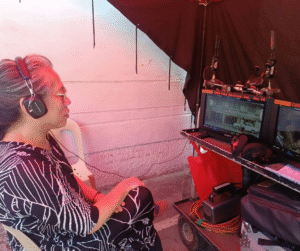By Cat Wigley
The spring half-term (and summer!) break is just around the corner and while many families are looking forward to enjoying plenty of sunshine by the beach, parents all dread that one important task: childcare. Filipino Mothers UK’s newsfeed is buzzing with the question: What are we going to do with our kids for an entire week or two? Most of us have no family who can help with childcare when the schools are closed.

Childcare in the UK is the third most expensive in the world. According to the charity Coram, parents spend an average of £14,836 a year to send children under two years old, a huge chunk of the family budget. For holiday childcare, the average cost is £138 a week, still a big amount of money that could be spent on food, rent or other family expense.
I have vented my problem about childcare to my best friend who is in the Philippines. Luckily for her, she has a nanny who looks after her kids. Apparently, it has been difficult for her, too, to find a reliable nanny. She said that help with childcare in the Philippines is no longer easily available like it used to be, especially when grandparents are no longer around to lend a hand.

Filipinos here in UK have been creative with their own childcare to save money. Many couples take turns to look after their children so they can both work although this means that many families are never complete most days. One parent stays home with the kids while the other parent goes to work and when the other parent is back, it’s the other’s turn to leave for work. And so the cycle goes on until the children are old enough to go to school or to be left at home on their own.
Just in case you’re not aware of the law, we cannot leave our children alone at home. Parents can be prosecuted for neglect if we leave children alone ‘in a manner likely to cause unnecessary suffering or injury to health.’ Under current laws in England and Wales, Scotland and Northern Ireland, parents and carers can be fined or sent to prison if they are judged to have placed a child at risk of harm by leaving them at home alone.
For those of you who are looking for a few options about childcare this half-term, here are a few ideas:
Take time off from work
If this is just a week’s break, you and your partner could take turns taking time off from work to look after your children. If you are a single parent, consider taking the whole week off. But what if it’s two weeks or more? Then it becomes more tricky to plan what to do with the kids for that entire time.
Holiday clubs
Depending on whether you have access to help with childcare, perhaps you may want your children to attend a holiday club so you don’t burn all of your leave credit. Take note, however, that most holiday clubs are open to children aged five years old and above.

You can register your kids to holiday clubs for a certain number of days or for an entire week. If you have two or more children, you can get a sibling discount. There are many holiday club providers who cater to children’s various interests: football, gymnastics, tech or coding, dance, arts and crafts, even forest school. These clubs are run by a qualified team and usually start from 9 am till 4 pm; some are open until 5 pm.
Childminder
Childminders look after children in their own homes. They have completed a childminding course and are registered with the governing body in the area where they live. They are more affordable and flexible as compared to nurseries.

There are not many Filipino childminders in the UK but do try to find one in your area if you prefer a Filipino childminder for your child. Who knows, you may just find one! Here’s a link to where you can find registered childminders. You can also ask friends for recommendations.
Private day nursery
If your child is enrolled in nursery, then you don’t really have to worry about childcare during half-term. This is the most convenient but the most expensive form of childcare because it’s for a long-term arrangement. Nurseries are open during term breaks, summer and Christmas holidays and close only during extreme weather conditions. However, nurseries have stricter registration rules, where you need to pay a deposit to secure your child’s place and attend a minimum number of sessions. You’re also required to give at least one-month cancellation notice or you pay a fine.
Family or friends
This is the most cost-effective option if you have family or friends living close to where you live. Don’t be shy to ask for or offer help to your friends. When I was a stay-at-home mother, I remember having to take on my friend’s two children one summer day so my friend and her partner could have some time off together.

You can ask a couple of close friends about doing a childcare rota among yourselves if they’re up for it! Each of you can take turns looking after each other’s children. It’s cheap and a fun way for children to spend time with their friends and people they are comfortable with.
My children definitely enjoy having their cousins and friends in the house. Instant entertainment for me! I find myself more at ease when their friends come around for a playdate. Obviously, you have to prepare snacks and drinks for a bunch of active kids. When we go to the park, I find myself just sitting around while the older children look after the younger ones in the playground. They love being the older person in the group!
Nanny or au-pair schemes
If you have a spare room in your house, you may want to consider sponsoring a student to work as an au-pair. You provide them with an allowance and accommodation in exchange for them doing some childcare. Unfortunately, it’s not easy to find au pair these days.
Except for the option of family and friends looking after our children, everything that I have mentioned above costs money. They are a huge expense slashed from our income. Just a note on safeguarding, all staff working with children in the UK are subject to Disclosure and Barring Service (DBS), where employers can check their criminal record.
On the positive side, parents can access some childcare funding schemes – subject to eligibility – such as free 15 hours childcare for two-year-olds and 30 hours childcare to three and four-year-olds. Chancellor Jeremy Hunt announced that in 2025, more help will come to families where 30 hours free childcare will be extended to all children from nine months up to five years. Let’s hope this happens as promised!
Enjoy the spring term break!
About the author

Cat has four young children between the ages 2 and 11. She works part-time as a primary school teacher while running Filipino Mothers UK, an online support group for Filipino mums. She also leads a playgroup in North Wales while at the same time being actively involved in the community and church.
She loves climbing, surfing, and going on zip lines. She enjoys decorating her house and mixing fruity gin for her friends.













